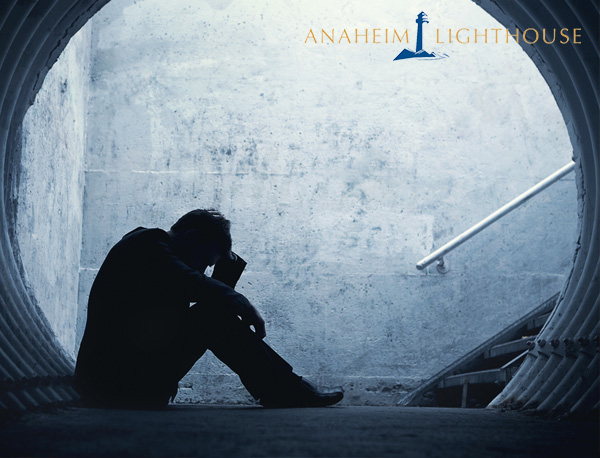Depression In Recovery A Common Experience
Depression is one of the most common mental and emotional symptoms of addiction. People who suffer from depression mistakenly turn to alcohol or drugs in an attempt to lift their moods. Their brains trick them into believing the “high” they experience is a solution. This short-term solution soon becomes a long-term problem.
Little does the addict know, alcohol and many addictive drugs, are depressants. They ultimately worsen the symptoms of depression. In serious cases of clinical depression, clients who enter rehab may have co-occurring disorders of addiction and depression or bipolar disorder. In these instances it is crucial that the addict go easy on themselves. Allowing time to readjust sans the crutch of mood altering substances with a chemical dependency and a mental illness is a full time job.
The professional medical staff at Anaheim Lighthouse works with each client in careful assessment of their specific needs, making sure to design the best treatment plan for addressing symptoms of depression. Our therapists and counselors have the expertise needed to help individuals with underlying disorders. When the process of recovery addresses the core issues, the chances of a productive life with less risk of relapse increase.
Treating Depression In Recovery Requires Patience, Commitment
By working closely with our professional staff, our clients learn to recognize the signs of depression and to have a plan of action ready to combat them. Some of the symptoms include:
- Inability to concentrate for long periods
- General feeling of fatigue
- Low self-esteem and feelings of worthlessness
- Inability to sleep well, resulting in irritability
- Food issues, such as overeating or losing interest in food
- Suicidal thoughts
By creating a sober tool kit to use when these symptoms occur and by recognizing trigger situations, individuals in addiction recovery can begin to feel whole again. They learn how to rebuild broken relationships, how to retrain their minds away from negative self-talk and how to make positive, health-giving choices in actions and behaviors, including the need for rest and nutrition also known as non-negotiable self care. There are varying degrees of depression, and our clinical staff helps educate our clients about depression and how to deal with it. There is a solution, and recovery is worth the extra effort.
Share your thoughts below or follow us on Facebook!














